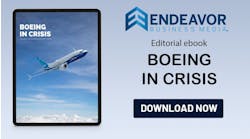The CFO position is transforming as industrial businesses are increasingly bringing operations back to the United States and shifting gears from cost-cutting toward growth. Investor interest in the sector has blossomed alongside the manufacturing renaissance in the U.S. In a survey of U.S. private equity executives by BDO, manufacturing was the industry sector most frequently cited as being the ripest area for new investment in 2014. Investment activity tends to invite change in the C-suite and puts different pressure on the skills CFOs need to be successful.
With all of these factors at play, industrial businesses are seeing robust turnover at the CFO level. For example, in calendar year 2013, the industrial sector was the most active for the KF1000, with a change rate of 19.8%.
For financial professionals eyeing a CFO position in the next year or two, it’s critical to seek out opportunities that help to demonstrate operational prowess, a mindset toward growth and strong fiscal leadership.
Operational Prowess
Industrial companies tend to be among the most risk-averse when it comes to hiring talent. The executive ranks are largely populated with people who have grown up in the industry. In recent years especially, CFO candidates frequently are plucked from within an organization’s ranks, and it has become increasingly difficult for competitors to entice strong candidates to jump ship. From 2011 through year-to-date 2014, CFOs in the industrial sector were internally promoted 60% of the time, compared to a 50% average for all other sectors.
An increasing amount of these CFO candidates are coming directly from, or have recently rotated through, general management roles. CFOs in the manufacturing world toady must have a thorough understanding of how to drive growth and find efficiencies in their operations and the supply chain, especially with rising interests in bringing certain functions back to the U.S.
Larger industrial companies are creating new positions where finance professionals are exclusively supporting the supply chain. Experience in a management or operational finance role enables candidates to demonstrate an understanding of lean manufacturing techniques, process improvements and how to run a P&L, arming them with a fuller appreciation of the directional responsibilities required when stepping into a top finance seat. Operational knowledge is invaluable for managing enterprise risk as well, which will continue to be closely scrutinized in the coming year.
A rotation in general management also allows CFO candidates to acquire first-hand knowledge of the right technological investments that will propel the organization forward. Technology is at the heart of the manufacturing resurgence, and candidates who are savvy about investments in new R&D that advances manufacturing processes or more sophisticated analytics that hit the bottom of the organization will be well positioned to handle these responsibilities.
Growth Mindset
As confidence has grown in the domestic economy and the appeal of offshoring has lost some steam, optimism has returned to the manufacturing sector. In PwC’s latest manufacturing barometer report, 85% of U.S. industrial manufacturers say they expect positive revenue growth for their own companies in 2014—and 13% forecast double-digit gains. Controlling costs and predictably growing margins has been the main purview of manufacturing CFOs for some time, but now investors are putting pressure on growth and innovation. CFOs are hearing a steady drumbeat about being a partner in their company’s growth strategy, but there are fewer candidates applying for the job that actually have recent “growth mode” experience.
CFO candidates should look for projects that provide exposure to funding innovation or making smart investments that give the company a competitive advantage. Equally important, CFOs must have a keen eye on what drives shareholder value and ensure the right metrics are in place to track success. In order to build experience in this space, financial executives could take a prominent role in a process improvement program or initiative, such as Six Sigma or lean manufacturing, which helps the finance executive better appreciate how the business improves and protects value. Additionally, gaining exposure with investor relations and analysts sharpens one’s perspective toward the enterprise initiatives that can move the needle in shareholder return.
Leadership Abilities
CFO candidates should search for exposure by working with rating agencies, banks, investors and the board. As manufacturing draws investor attention, it also brings with it activists and analysts on Wall Street.
A strong CFO candidate should be able to prove that they can stand strong in the face of adversity and exude a confidence that will bode well with Wall Street and shareholders. They must also be able to effectively build relationships that can help strengthen the company’s reputation to secure financing and access to the capital markets. Operational experience is beneficial here as well, as is rotating through a treasury or financial planning and analysis role.
From the Outside, Looking In
Candidates with limited experience in the manufacturing industry will likely find it extremely difficult to make an industry leap. In 2013, only 7% of industrial CFO appointments came from outside the industry, compared to a 15% average for all other sectors. Large industrial companies may offer more opportunities for an outside to be brought on as CFO, since there are numerous people inside who understand the nitty-gritty of the business and can help provide a critical industry-specific lens. Still, it’s a significant leap.
Candidates seeking to penetrate the industry should consider the unique CFO capabilities they bring to the job that will help further the organization’s goals. Experience with Wall Street or leadership in the midst of a transaction could translate well, depending on where the organization is trying to create value.
For example, a manufacturing organization might be looking to take a product business or engineering advisory and develop it into a more legitimate services business. A candidate without deep industry experience could point to parallel experience taking their current firm in that direction.
Shaping the Future
CFOs have an opportunity to help shape the future of manufacturing as it enters an exciting new chapter. Strong candidates will be distinguished by their ability to help guide company growth and uncover new paths for innovation, in order to gain a comprehensive edge. Operational knowledge and strong leadership abilities will outweigh strong technical skills as CFOs become more of a partner in influencing the company’s future.
Bryan Proctor is global co-lead of the Financial Office Practice, and Ken Rose is lead of the Global Diversified Manufacturing Practice at Korn Ferry International, a provider of leadership and talent acquisition and consulting services.



